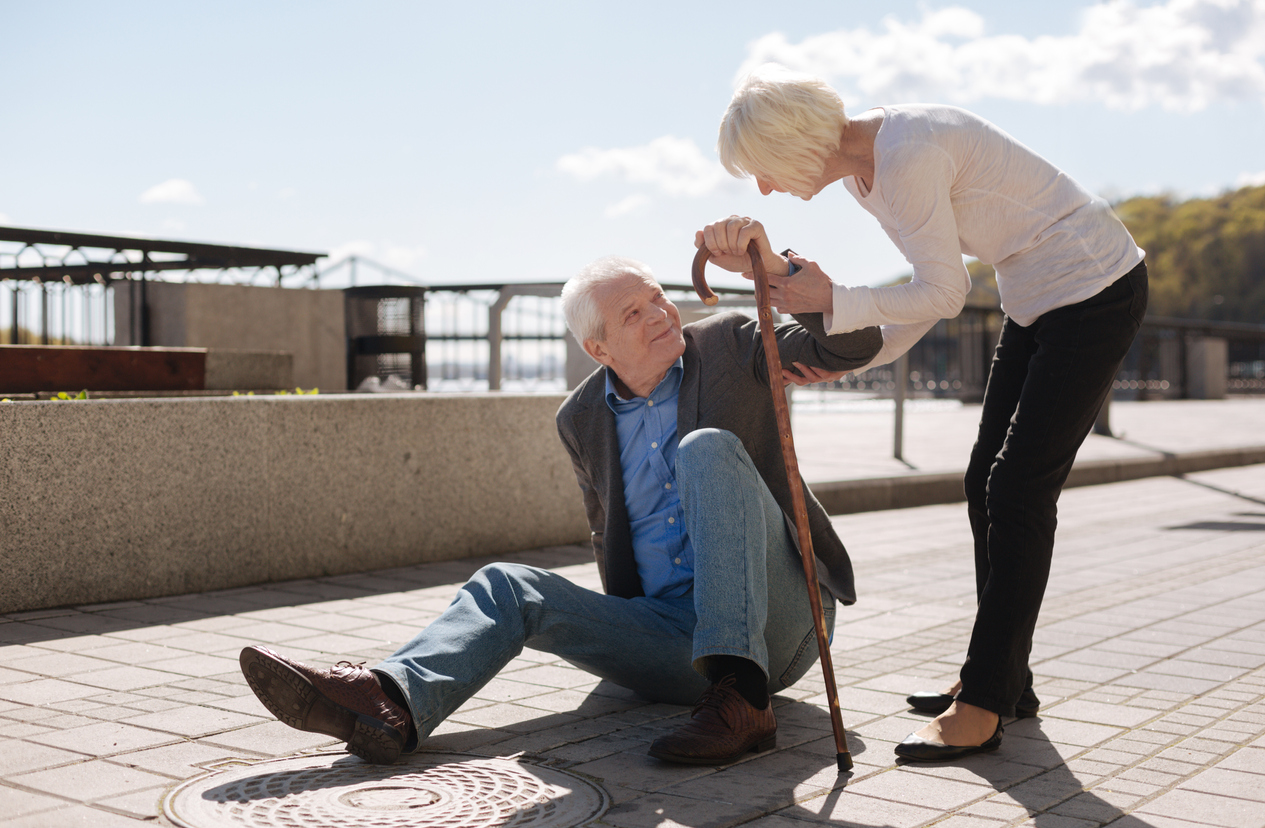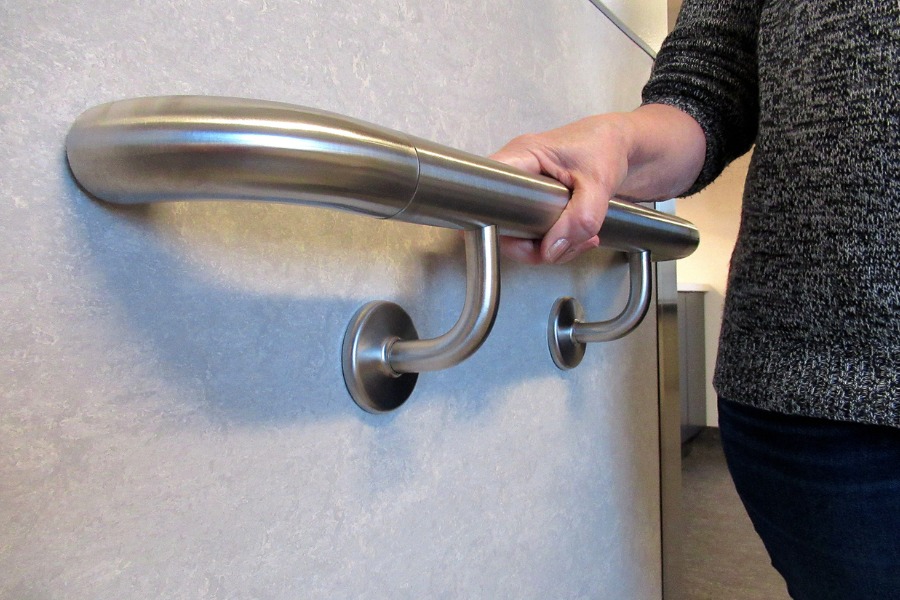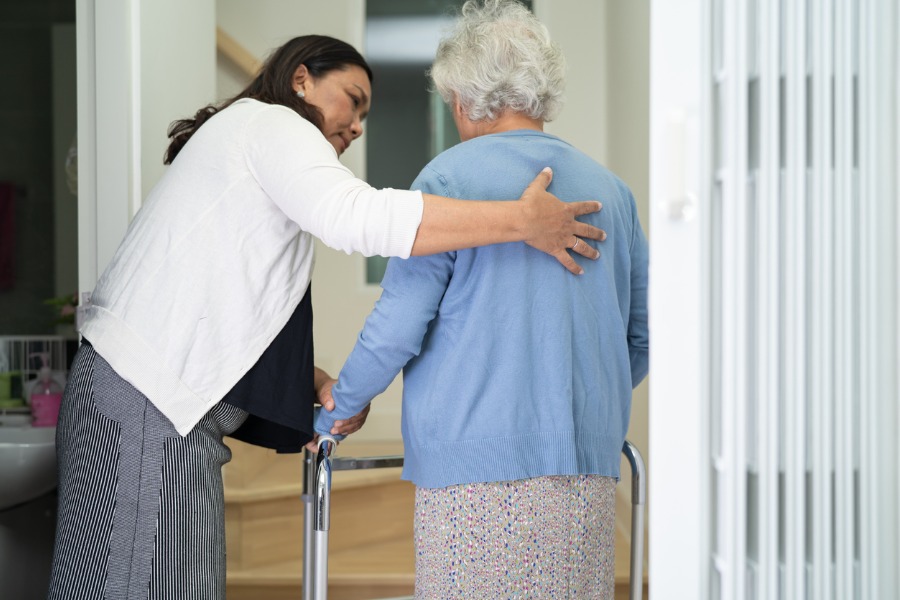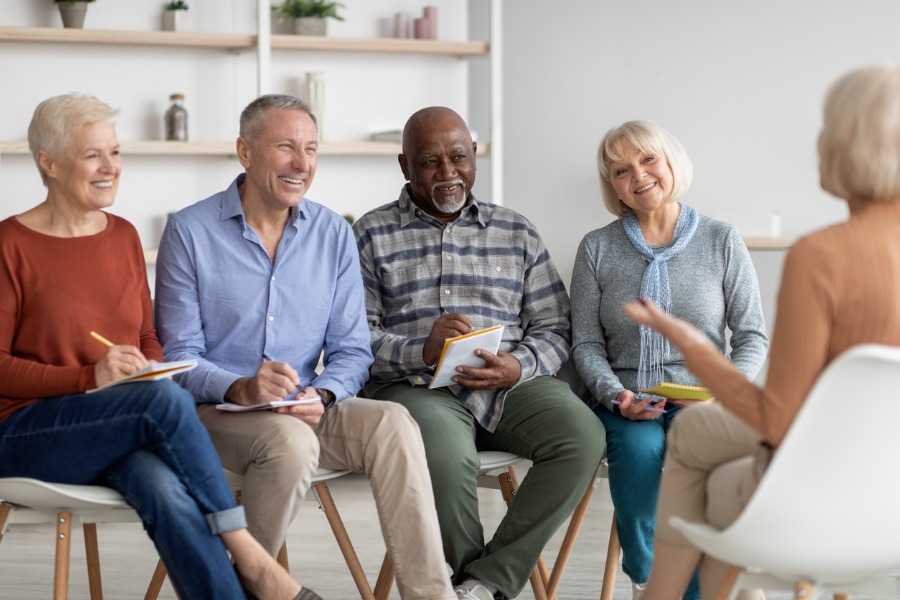
“I’m really worried about my mom. She keeps falling down, and I don’t know what to do.”
We often hear comments like this in the homecare industry, and there’s a reason for that – 1 in 3 older Americans fall every year, and every 15 seconds, a person is seen in the emergency room for an injury related to a fall.
Falls are complicated, costly, and a primary reason why seniors will leave the home that they loved. One fall often leads to the next. With each fall, the risk of permanent injury or even death increases.
To prevent a fall or reduce the risk of a subsequent fall, here’s what’s most important:
Take a proactive approach.
Let’s look at some ways in which you can do that.
Fall Risk Assessment for Seniors

Scheduling a thorough medical exam and fall assessment is an important first step. A medical evaluation with diagnostic tests is the best way to detect underlying and likely untreated health concerns that might cause a fall. Conditions ranging from a urinary tract infection to diabetes or dementia are possible culprits. By speaking with a doctor, sharing any information you have and getting the right diagnostic tests, these problems can often be detected and, often, either resolved or better managed.
Prevent Falls at Home

Next, evaluate the home environment. A few simple home improvement projects make your loved one’s home safer and reduce their risk of experiencing a fall. Reduce or eliminate clutter from walkways, stairways and hallways. Repair loose floor boards or carpeting and secure area rugs to the floor. Install grab bars and handrails especially in wet areas like the bathroom or frequently traveled areas like hallways. Ensure there is proper lighting across the home and eliminate electrical cords that can pose a tripping hazard. Arrange furniture in a way that makes rooms easier to navigate and provides adequate space for walking. If the home has stairs, apply high-contrast tape to the bottom and top step and thresholds to make them more visible.
In a weekend you can make most of these simple improvements and help your loved one to feel safer and more secure at home.
Reminders Reduce the Risk of Falls

Simple reminders that make walking safer can decrease a person’s risk of falling. If your loved one has balance challenges or gets tired quickly when walking, suggest the use of a cane or walker for support. Discuss this option with your loved one’s doctor and consider enlisting the help of a physical therapist to assess the need and value of this equipment. A physical therapist also teaches proper usage which is essential for safety. Purchase shoes with non-slip soles. Encourage your loved one to wear them even indoors. Replace shoelaces that tie with elastic ones that do not require tying. Allow plenty of time for activities that involve walking, bending or moving from a sitting to standing or laying down to sitting position.
If remembering these steps is challenging for the senior or they need more support with daily activities, consider hiring a professional caregiver as part of the solution.
A Matter of Balance

Education reduces your loved one’s fear of falling and empowers them to safely increasing their activity level to build strength and balance.
In Orange County, the Office on Aging offers a research-based program called A Matter of Balance: Managing Concerns About Falls. Similar programs are available across Southern California. This 8-week program meets for 2-hour sessions on a weekly basis. During each session seniors learn to:
- View Falls as Controllable Events
- Set Activity Related Goals
- Make Changes in the Home Environment to Reduce the Risk of Falling
- Participate in Safe, Effective and Gentle Weekly Exercise
The A Matter of Balance program is highly effective with a 2013-2014 outcomes report showing that seniors were more comfortable talking about their fear of falling. Participants frequently made changes to their environment and increased their activity level after participating.
Many fall prevention strategies exist that help seniors. Perhaps the most important tip is to know that you’re not alone. Reach out for community support and take advantage of research-based fall prevention programs.
Salus Homecare of Orange County is here to help with quality in home care that empowers seniors to enjoy a higher quality of life at home. Call us to schedule your in home fall prevention consultation, and let’s work together to create a care plan that keeps your loved one safe.

